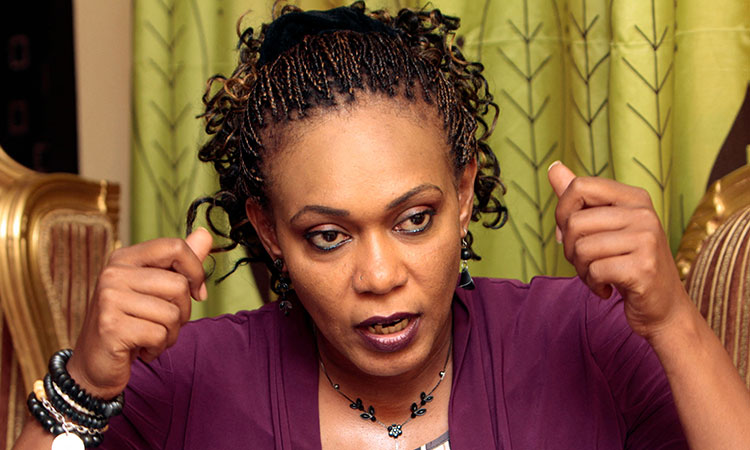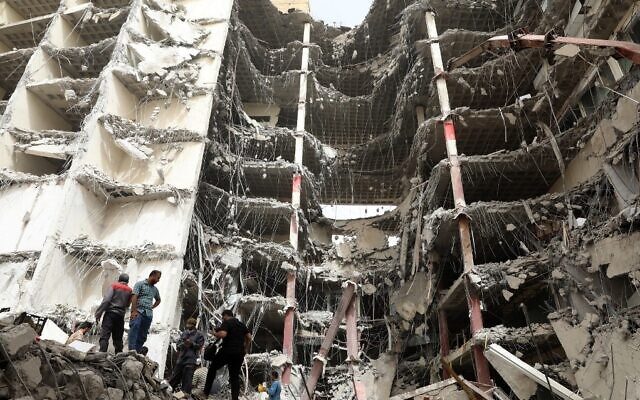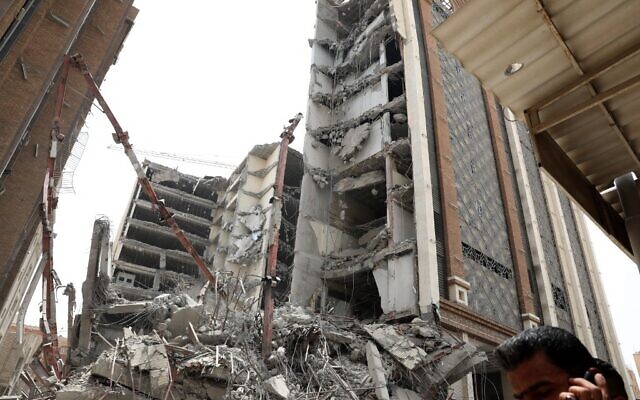
Amira Osman Hamed speaking with an AFP journalist during an interview in Khartoum. File / AFPSudanese women's activist Amira Osman Hamed has won a Front Line Defenders Award for Human Rights Defenders at Risk, the organisation announced on Friday.
The activist and engineer, now in her forties, has been advocating for Sudanese women for two decades, and was detained this year in a crackdown following the country's latest coup.
She was among defenders from Afghanistan, Belarus, Zimbabwe and Mexico who also received the 2022 award for Human Rights Defenders at Risk.
Amira Osman "never deterred from her mission," Dublin-based Front Line Defenders said in its awards announcement, "consistently (advocating) for democracy, human rights, and women's rights."
After first being charged for wearing trousers in 2002, she drew international support in 2013 when she was detained and threatened with flogging for refusing to wear a headscarf.

Amira Osman Hamed during the interview in Khartoum. File / AFP
Both charges fell under morality laws during the rule of longtime autocrat Omar Al Bashir who took power in an Islamist-backed coup. Osman told AFP at the time that the morality laws had "changed Sudanese women from victims to criminals" and targeted "the dignity of Sudanese people."
In 2009 she established "No to Women Oppression," an initiative to advocate against the much-derided Public Order Law. It was finally repealed in 2019 after Bashir's ouster following a mass uprising.
Women were at the forefront of protests that toppled Bashir, and hopes were high for a more liberal Sudan as restrictions were removed that had stifled their actions and public lives.
In late January 2022, Osman's team told AFP that "30 masked armed men" had stormed into her house in Khartoum in the middle of the night, "taking her to an unknown location."
The United Nations mission to Sudan called for her release, tweeting that "Amira's arrest and pattern of violence against women's rights activists severely risks reducing their political participation in Sudan."
She was freed in early February and an AFP correspondent saw her participating in a demonstration, kneeling on crutches due to a prior back injury.
Both charges fell under morality laws during the rule of longtime autocrat Omar Al Bashir who took power in an Islamist-backed coup. Osman told AFP at the time that the morality laws had "changed Sudanese women from victims to criminals" and targeted "the dignity of Sudanese people."
In 2009 she established "No to Women Oppression," an initiative to advocate against the much-derided Public Order Law. It was finally repealed in 2019 after Bashir's ouster following a mass uprising.
Women were at the forefront of protests that toppled Bashir, and hopes were high for a more liberal Sudan as restrictions were removed that had stifled their actions and public lives.
In late January 2022, Osman's team told AFP that "30 masked armed men" had stormed into her house in Khartoum in the middle of the night, "taking her to an unknown location."
The United Nations mission to Sudan called for her release, tweeting that "Amira's arrest and pattern of violence against women's rights activists severely risks reducing their political participation in Sudan."
She was freed in early February and an AFP correspondent saw her participating in a demonstration, kneeling on crutches due to a prior back injury.
The award has honoured human rights defenders annually since 2005.
Agence France-Presse






